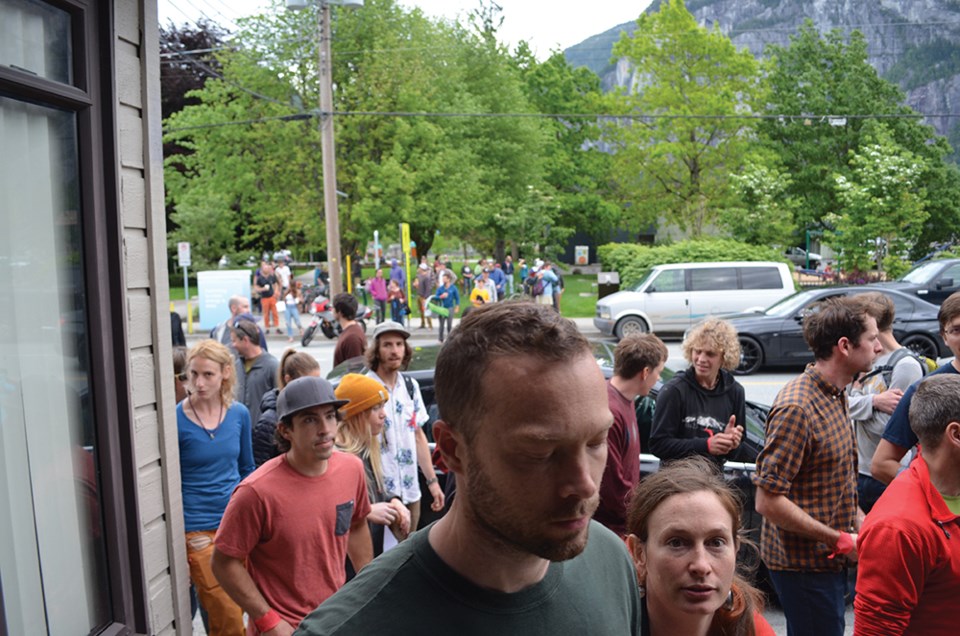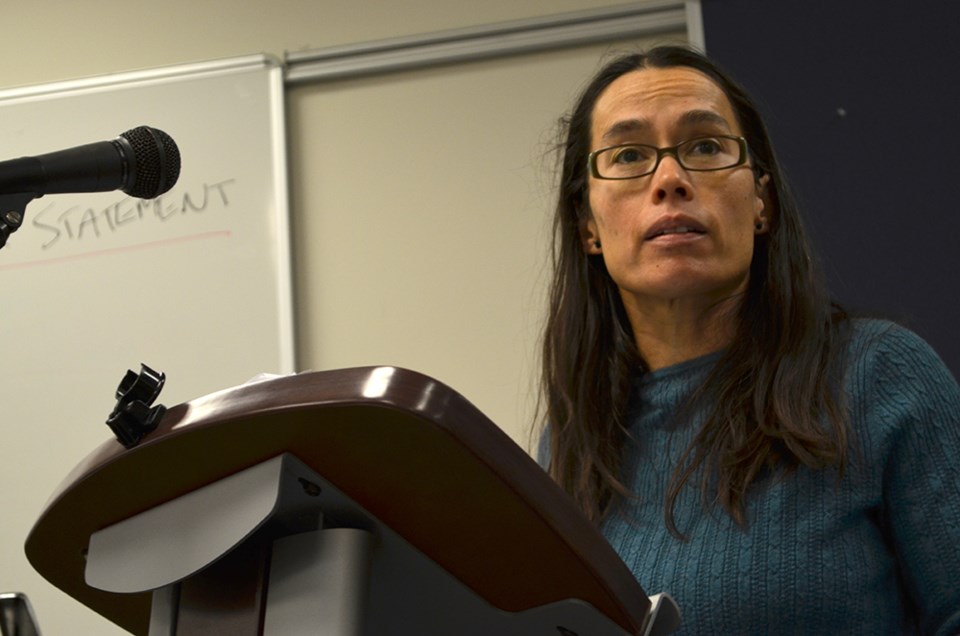Locals living the van life can breathe a little easier — at least for now.
A flood of criticism has slowed the momentum of Squamish’s proposed camping bylaw, which many fear would force residents living in their vehicles out of town.
Councillors — with the exception of Coun. Jenna Stoner, who was absent — unanimously voted to pass first reading of the bylaw on May 21. Council was initially considering passing all three readings at once.
Mayor Karen Elliott decided to put forth only one reading with the promise that the District would consult more with locals living in their vehicles before moving further with the proposed bylaw.
“What we’ve discovered here tonight is a form of housing that hasn’t been contemplated in our affordable housing strategy,” said Elliott.
“We want to build housing for the whole housing spectrum, and this is a whole group of people that, to this point, have been invisible from that discussion. But at the same time, we get complaints from residents about people in their vans.”
“Whether those are seasonal or whether those are people living there full-time, we need to balance the interests of both,” Elliott said.
The decision was greeted with cautious optimism by van lifers and their supporters, who flooded municipal hall to voice their opposition to the bylaw.
“It’s promising, and, hopefully, we look forward to working together to hopefully find a solution that works well for everyone,” said Rufio West of the newly formed Vehicle Residents of Squamish Advocacy Group.
“It seems like council is committed to actually working together.”
Similar sentiments were shared by Thomasina Pidgeon, who organized much of the opposition to the bylaw and started a Change.org petition that had almost 3,000 signatures by the end of Tuesday.
“I’m really happy that they’ve listened to us and we’re open to discussion,” said Pidgeon. “Hopefully, the solution will move to something that works for everybody.”

In council chambers, almost all the seats were filled with residents opposed to the bylaw, and even more flooded the municipal hall lobby, packing the area almost shoulder-to-shoulder.
Prior to council’s decision, Pidgeon and West, along with other van life advocates spoke at length to council.
“I live in a van. I make $1,000 a month,” said Pidgeon. “I cannot afford rent in Squamish. For me, my van life is my choice, but it’s also my necessity.”
Pidgeon said local van lifers acknowledged there are problems, but the bylaw should directly target problematic behaviours rather than people who live in vehicles.
She also pointed to a letter drafted by the Pivot Legal Society that says the District’s proposed bylaw violates both the Charter of Rights, as well as the B.C. Human Rights Code.
“Rather than attempting to alleviate historical disadvantage or ameliorate the circumstances of people living with disabilities, the proposed bylaw seeks to punish persons for doing what they can to survive under extreme hardship,” reads the letter from Anna Cooper, a staff lawyer with Pivot Legal Society.

West said the bylaw fails to ensure well-behaved long-term van lifers have a place to stay.
“It will turn otherwise law-abiding upstanding members of your constituency into outlaws simply for how and where they go to sleep at night,” said West.
“These people make your food, they teach your kids, they build your homes.”
West also referenced a survey done by the Vehicle Residents of Squamish Advocacy Group.
The preliminary findings show 104 of the 169 van life respondents identify as locals. The majority of those staying at least four months in Squamish are locally employed, according to the results.
Both West and Pidgeon advocated for a permitting program that would distinguish permanent residents from tourists and allow well-behaved locals to live in vehicles.
The head of a local non-profit dedicated to helping the poor spoke to council, as well.
“I’m opposed because the problem is that there’s a possibility for criminalization, or acting on this bylaw indiscriminately, even though I know there’s an intention to be discriminate,” said Maureen Mackell, of Squamish Helping Hands.
She said vulnerable members of society could be further marginalized.
The proposed bylaw comes amidst the backdrop of a local housing crisis in a town with a near-zero-per-cent vacancy rate. However, it also arrives in the wake of local complaints about lack of parking, dumping and human waste, which some have blamed on van lifers.
Tinder-dry forest conditions and human-caused wildfires have also given authorities reason to be wary of what they consider unauthorized camping.
In its current form, Bylaw No. 2679, 2019 would allow the District to issue fines of up to $10,000 per day — though staff promised this amount would virtually never be used — to people camping within the municipality outside of a designated campsite. A $100 fine would be more typical, they said. Camping in this context refers to either using a tent or sleeping in a vehicle.
Some critics say this would penalize homelessness in town. However, District staff say that camping in the municipality outside of designated sites was never allowed in the first place, and that this bylaw merely gives enforcement officers some teeth.
The District has means to penalize vehicle dwellers in areas such as town roads, parks or parking lots, but people were able to camp on Crown land within municipal boundaries because bylaw officers couldn’t ticket them there.
“We don’t have an enforcement tool, so in a sense, it’s legal because we have no way of enforcing that, but it is not allowed,” said Natasha Golbeck, the District’s director of community services.
The proposed bylaw would also try to funnel van lifers to the Pit on the Mamquam Forest Service Road, near Raffuse Creek. An earlier proposal to also have them go to the Cat Lake area was dropped.
People would still be able to camp on designated campsites, though van lifers have said those areas are too expensive and only allow for a limited stay time.
More than 30 letters voicing opposition to the bylaw were sent to council.



